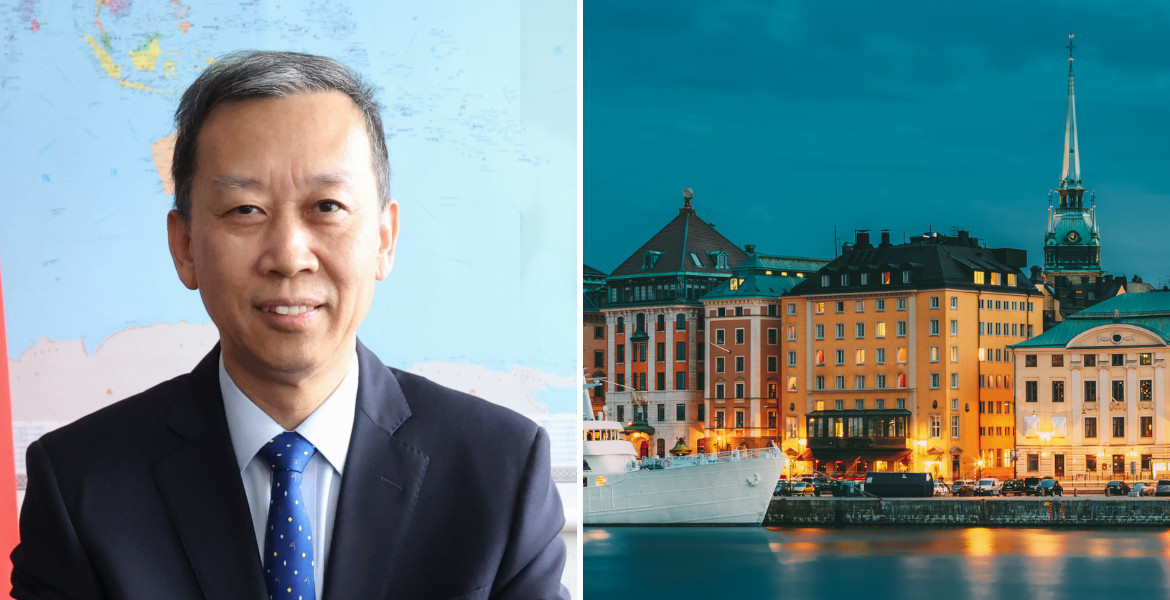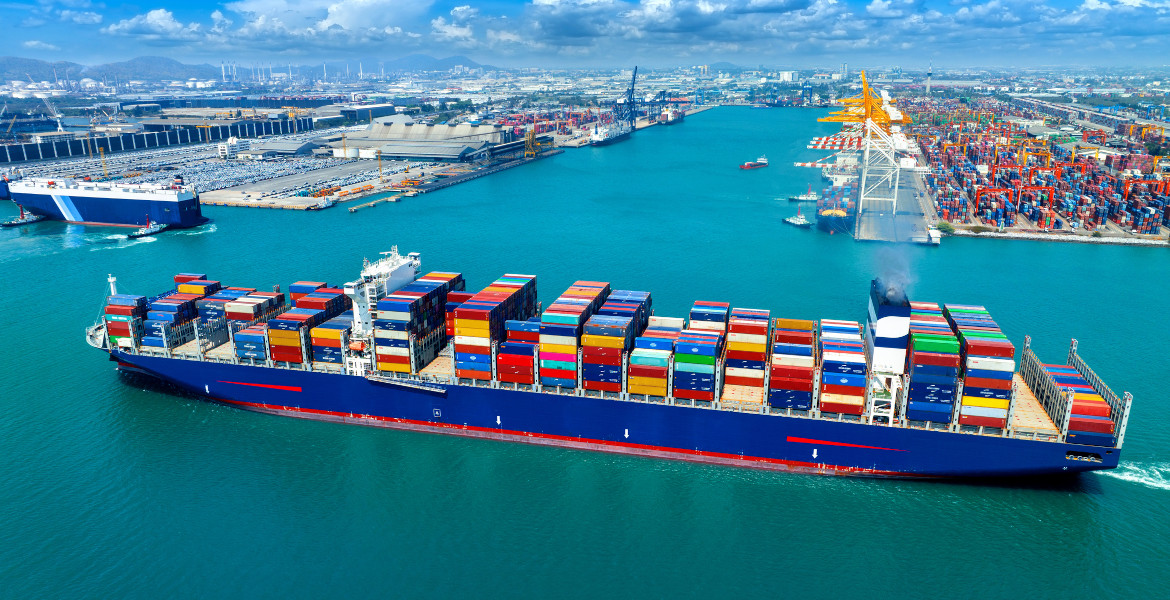Who governs our information, and how do they do it? As countries enact laws that put our basic freedoms under pressure, there’s a growing need for public discourse on the delicate balance between individual rights and collective security. This opinion dives into the current state of governmental control over information, aiming to shed light on a topic that affects us all – whether we’re aware of it or not.
Governments, power, censorship
In the summer of 2021, the EU parliament passed a law known as “Chat Control”. Under the guise of protecting children from online exploitation, the Chat Control directive mandates communication providers to decrypt and scan private communications. A move that is likely in conflict with our human rights. The law was passed without democratic debate and a poll of EU citizens show 72% resistance to the law.
In late 2022 the EU passed the DSA (Digital Services Act) to protect citizens from harmful content and misinformation. Again, without any democratic debate, and likely in violation of our human rights. In Orwellian style each EU member country will have to create a ministry of truth that determines which information is “harmful” or “misinformation” and they then have the power to censor information they deem inappropriate.
In the U.S., government censorship has been widespread and rampant. In September 2023, the U.S. Fifth Circuit Court issued a pivotal ruling, upholding an injunction that bars specific government entities, including the White House, Surgeon General, CDC, and FBI, from coercing or encouraging social media platforms to suppress or remove constitutionally protected speech. The court found that the Biden administration had coerced these platforms through “intimidating messages and threats of adverse consequences,” particularly in matters related to the pandemic and the 2020 elections.
Our rights
The United Nations Universal Declaration of Human Rights (UDHR), Article 12 and Article 19, lay the foundation for individual privacy and freedom of expression, respectively. Article 12 protects against “arbitrary interference” with one’s privacy, family, home, or correspondence, and offers everyone the right to legal protection against such interference. Article 19 upholds the right to freedom of expression, which includes the “freedom to hold opinions without interference and to seek, receive, and impart information and ideas through any media and regardless of frontiers.” These articles not only secure these freedoms within a single nation but emphasize their importance across borders, underlining the global scope of these human rights.
Additionally, the constitutions of individual countries also reinforce these foundational democratic rights. For example, the First Amendment of the U.S. Constitution protects the freedom of speech. The Danish Constitution explicitly states that “censorship shall never again be introduced,” maintaining a steadfast commitment to the free dissemination of ideas. Germany’s Basic Law similarly enshrines freedom of expression and opinion in Article 5, while France’s Declaration of the Rights of Man and Citizen of 1789 establishes the freedom of speech as one of its core tenets. These constitutional frameworks offer additional layers of protection, safeguarding freedoms that are not just cornerstones of democracy but also universal in scope.
Misinformation and disinformation
Misinformation is false or misleading information shared without the intent to deceive. Disinformation is false information shared with the intent to deceive or mislead.
Consider the historical example of the dangerous pesticide DDT. For years, government agencies promoted its use and deemed it safe. Yet, some citizens and environmentalists, guided by observation, intuition, and emerging studies, vehemently argued that DDT posed significant risks to human and environmental health. At the time, their claims could have been easily dismissed as misinformation and disinformation by authorities. However, as further research accumulated, the harmful impacts of DDT were confirmed, leading to its ban in many countries.
This case exemplifies the near impossible challenges of labeling information as ‘misinformation’ or ‘disinformation,’ especially when what is considered ‘false’ today might be validated as ‘true’ tomorrow.
A more recent example might be a 2020 opinion piece in the New York Post titled “Don’t buy China’s story: The coronavirus may have leaked from a lab”. This opinion piece was deemed misinformation and was either labelled false by fact checkers and / or censored across all social media platforms. In 2023 both the FBI and the Department of Energy believe a lab leak to be more likely than a natural origin.
What is considered ‘false’ today might be validated as ‘true’ tomorrow.
Even if evidence eventually supports a natural origin for the virus, the right to debate ideas and express differing opinions remains not only a fundamental human liberty but also the cornerstone of scientific inquiry; without such freedom, the very essence of science is compromised. Therefore, it is unequivocally wrong that such discussions are being censored, as it undermines the principles that underpin both democracy and scientific progress.
Example of government and press disinformation: covid origins
It is by now extremely well documented that the U.S. NIH has financed dozens of experiments in the Wuhan lab. These included gain-of-function experiments that created artificial Coronaviruses with enhanced pandemic potential. This was a well-known fact to the NIH since at least January 2020. Regardless, since February 2020 large parts the US government has been broadly censoring any claims that Covid might have escaped from the lab. They even continued the censorship after, in mid-2021, it became public knowledge that the US was involved in the lab.
The implication is that the U.S. government’s proactive censorship, and spread of disinformation, has led to a widespread censorship ecosystem on social media platforms, affecting not just American discourse but also international perceptions. For instance, a Voxmeter survey revealed that only 15% of the Danish population is aware of U.S. involvement in the Wuhan lab, highlighting the extent to which disinformation and misinformation can penetrate global public opinion.
This has resulted in a mainstream press that often echoes the U.S. government’s narrative, both domestically and internationally. Even when information contradicting the official stance becomes public, the media largely remains silent for reasons that are yet to be fully understood. As of 2023, both the American public and global communities remain uninformed about key aspects concerning the origins of COVID-19, due in part to this cycle of disinformation and self-censorship.
This dynamic raises serious concerns about the erosion of democratic values and undermines an informed citizenry, critical for the healthy functioning of any democracy.
Example of government and press disinformation: presidential election
In the weeks up to the US 2020 presidential election, a story broke on the New York Post that emails from Hunter Biden’s laptop potentially implicated presidential candidate Joe Biden in business dealings with China, Russia, and Ukraine. The story was immediately heavily censored on all social media platforms. The New York Post was completely locked out of Twitter until after the election, and it wasn’t possible to send a direct message containing the link to the article. Fifty-one high ranking former intelligence officials signed a letter stating that the laptop was Russian disinformation. Joe Biden used this letter in his televised presidential debate against Donald Trump, invoking the Russian specter from 2016. It has since been revealed that the laptop is real and that the FBI had the laptop in their possession almost a year earlier.
It’s difficult to characterize these events as anything other than election manipulation by large parts of the intelligence community, a manipulation that was significantly amplified by most of the press, who may have been influenced or misled.
Given these unfolding events, one must ask: How does this coordinated effort of censorship and disinformation undermine the press and the very foundations of a free and fair democratic process?
Conclusion: Navigating the tangled web of censorship, misinformation, and disinformation
As the lines between governments, intelligence agencies, big tech, grass root movements, and media entities continue to blur, the freedom to seek, receive, and impart information is increasingly under threat.
The universal human rights delineated by the United Nations and echoed in individual countries’ constitutions are being directly confronted by recent legislative actions. From the EU’s Chat Control and Digital Services Act to the censorship and disinformation around the COVID-19 origins and U.S. presidential elections, the global landscape for open discourse is facing unprecedented challenges.
It’s worth noting that while the goal of protecting citizens or children sounds noble, the methods employed raise important ethical and constitutional questions.
The global landscape for open discourse is facing unprecedented challenges.
When governments and corporate entities take upon themselves the authority to determine what constitutes misinformation, the risk of infringing upon individual freedoms is unavoidable. Further, their decisions are often fraught with subjectivity and conflicts of interest that undermine their ability to act as impartial arbiters of truth.
Given the fluid and sometimes contradictory nature of information, labeling something as ‘misinformation’ or ‘disinformation’ is a perilous undertaking. History has shown us that what is considered false today might be validated as true tomorrow. The cases of DDT, the origins of COVID-19, and the Hunter Biden laptop story are cautionary tales of the pitfalls of preemptive censorship.
In light of these complexities, perhaps it’s time to reconsider our approach to information governance. Shouldn’t we aim for a model that allows for the maximum exercise of individual freedoms within the bounds of the law, rather than a restrictive framework that is vulnerable to political influence, subjectivity, and misuse? After all, a key tenet of democratic society is that an informed citizenry is best equipped to make decisions affecting its own destiny.
This is not to suggest that regulation should be altogether absent; rather, it should be limited to manage only what is demonstrably harmful and illegal. Such frameworks already exist in abundance within each sovereign country.
As we move further into the 21st century, it becomes crucial that we do not sacrifice these essential liberties at the altar of perceived security or control. For once lost, they may prove exceedingly difficult to regain.
Centralized systems, such as social media and chat apps, are irresistibly attractive targets to control by intelligence agencies, geo-politics, and legislation – also within democratic societies. This underscores the urgency of exploring alternatives to the status quo. We need to explore impartial and decentralized approaches to information governance, ones that prioritize individual freedoms, sovereignty, and encourage a culture of informed, critical thinking.
Michael Seifert
About the author
Michael Seifert is a co-founder of Sitecore, a leading company in the field of web content management and digital experience platforms. Established in 2001 in Denmark, Sitecore has grown into a key player in providing comprehensive solutions for digital marketing and customer experience management across various channels.
In addition to his achievements with Sitecore, Seifert also has a connection to the early days of online gaming. He was involved in DikuMUD, a pioneering multiplayer text-based role-playing game developed at the University of Copenhagen. DikuMUD was influential in the evolution of online gaming, particularly in shaping the MMORPG (Massively Multiplayer Online Role-Playing Games) genre.










